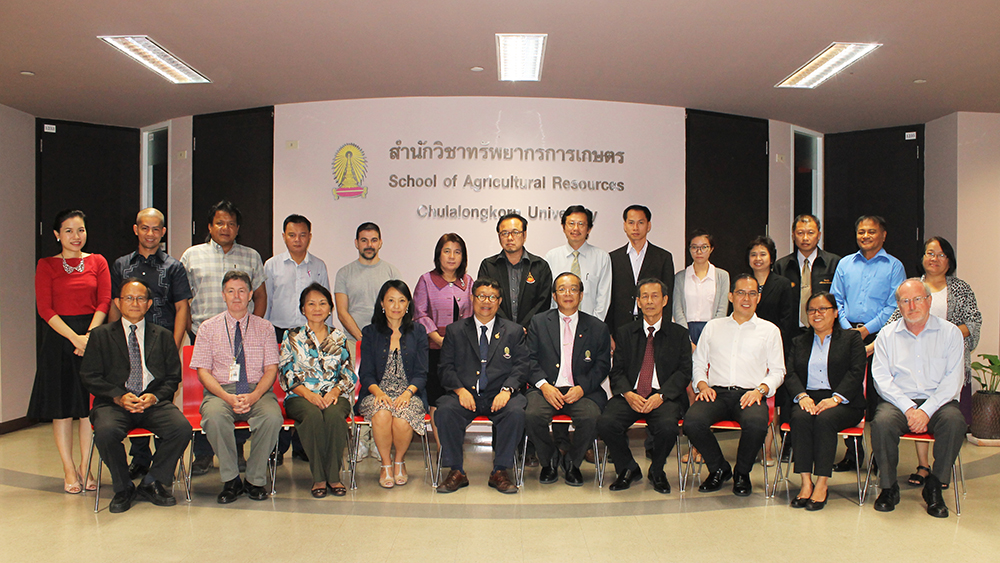On August 18th 2015 SIANI Expert Group on Higher Education for Sustainable Agriculture (HESA) in Southeast Asia held a Public Forum followed by a smaller HESA-SIANI Expert Group regional meeting at Chulalongkorn University School of Agricultural Resources (CUSAR) in Bangkok.
The meeting was organized as a pre-conference workshop to “Social and Sustainability Sciences in the ASEAN Community” event that took place between 19-21 August 2015 in partnership with the ASEAN University Network (AUN), the National Research Council of Thailand (NRCT); and the United Nations Educational, Scientific and Cultural Organization (UNESCO) Bangkok, Asia and Pacific Regional Bureau for Education, Social and Human Sciences Unit. The larger conference included papers on agriculture education by HESA-SIANI Expert Group members.
The first panel of the August 18th HESA public event at CUSAR had speakers from regional and international agencies including the International Center for Tropical Agriculture (CIAT) Asia Regional Office; the Food and Agriculture (FAO) Organization, United Nations, Regional Office for Asia and the Pacific, Bangkok; and Southeast Asian Ministers of Education Organization (SEAMEO Southeast Asian Regional Center for Graduate Study and Research in Agriculture (SEARCA). Presentations (click link) of agency officials responded to the following discussion questions:
- What are the principal, most pressing interrelated agriculture-environment problems and food security challenges in Southeast Asia?
- What are international or regional agencies currently doing to address these interconnected concerns through capacity strengthening partnerships with universities, research institutions and extension agencies?
- What examples of innovations and best practices now exist in your agency to support post-secondary capacity strengthening or education, training, extension and research for sustainable agriculture to address overlapping agro-environmental problems, food security, hunger and poverty?
- Can or should international agency support for post-secondary education, training and research be improved to better address interrelated agriculture-environment problems and food security challenges? If so how?
- What kinds of new or strengthened international or regional agencies resources or partnerships could be helpful with post-secondary institutions to better improve HESA teaching, learning, research and extension services?
This was followed by a second panel of expert group members presenting progress reports on the Philippine, Lao PDR and Thai case studies with drafts of their Policy Brief outlines. Speakers were from various universities and colleges as well as government research institutes. The morning public event was followed by a business meeting in afternoon to review similarities and differences concerning policy issues in each of the three countries while planning future projects and research. It was decided that HESA regional outreach would be enhanced by including the four other ASEAN countries (Cambodia, Indonesia, Myanmar and Viet Nam), in the coming year.
